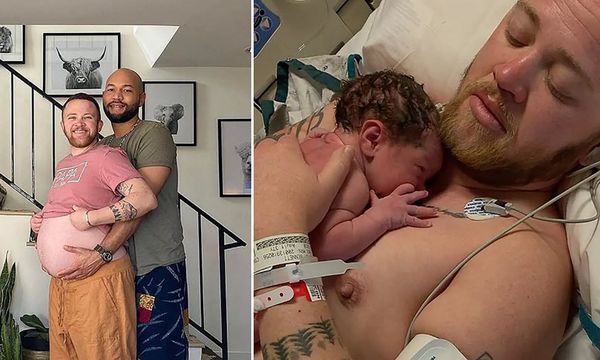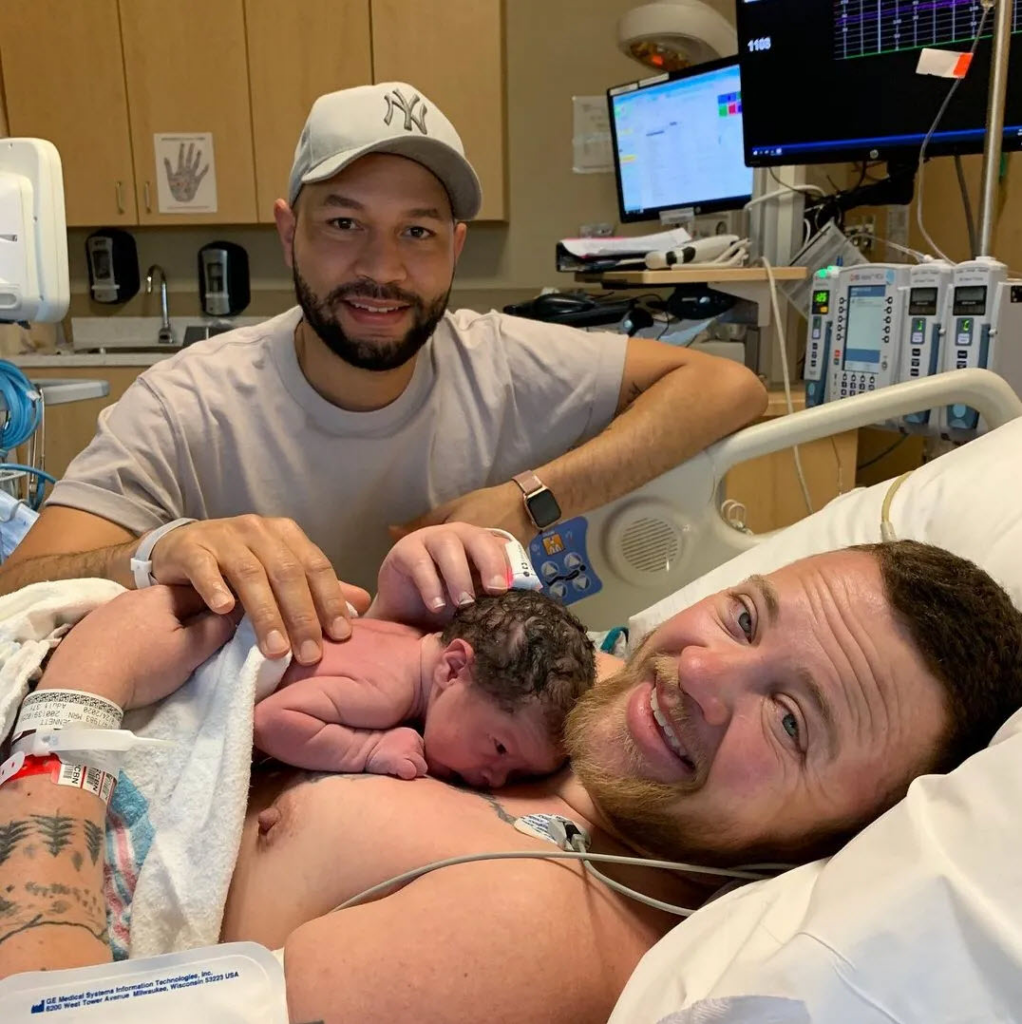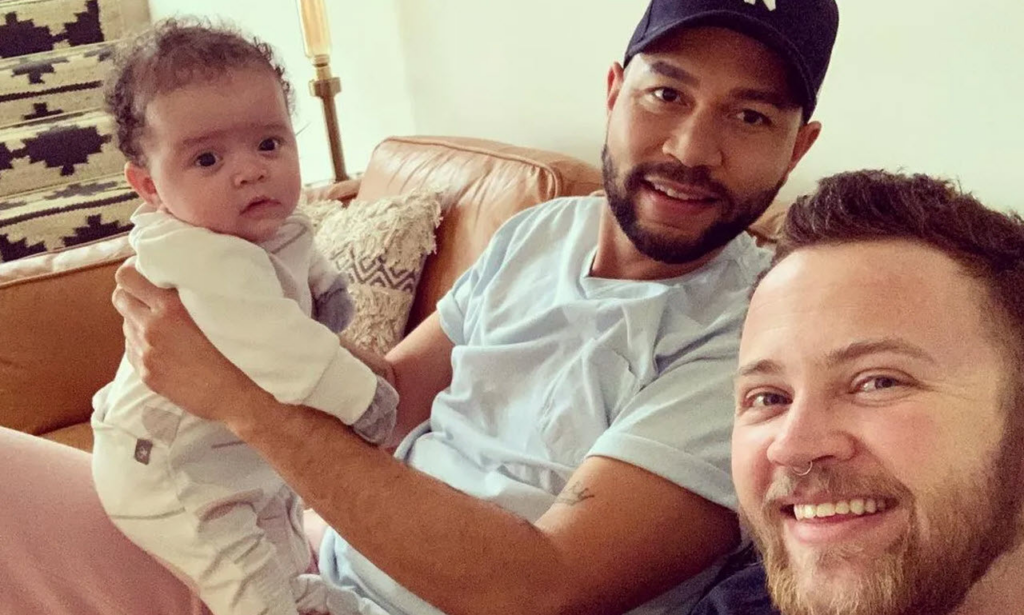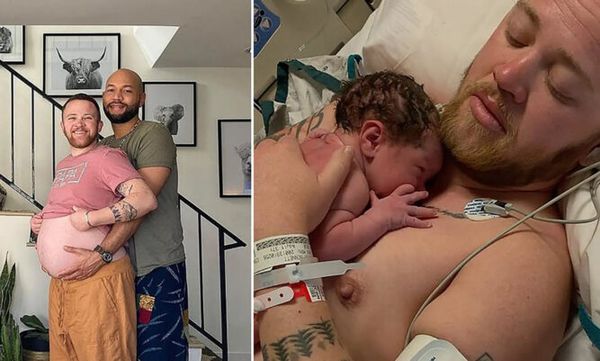The world is constantly evolving, but sometimes it takes longer for some people to catch up. This is especially true for transgender individuals who often find themselves having to assert their identities repeatedly. Not everyone has embraced the practice of using correct pronouns when referring to others.

Recently, 37-year-old Bennett Kaspar-Williams, a transgender man, experienced such a challenge when he gave birth to his child, Hudson, via a cesarean section. With the support of his husband, Malik, the birth went smoothly. However, despite identifying as male and using he/him/his pronouns, Kaspar-Williams faced certain difficulties. Having now embraced a non-binary identity, they also use they/them pronouns.

The issue arose when nurses at the hospital referred to Kaspar-Williams as the mother of the child, rather than the father. Understandably, Kaspar-Williams took offense to this.
It’s important to note that Kaspar-Williams underwent surgery in 2014, transitioning to their identified gender. While the upper part of their body changed, the lower part remained unchanged.

The experience of pregnancy and childbirth was deeply fulfilling for Kaspar-Williams. However, it was disheartening to be labeled incorrectly by medical staff who failed to understand and respect their gender identity, despite indicating their preferred gender on medical forms. This misgendering continued to happen even after the birth of Hudson. As a result, Kaspar-Williams is now actively advocating for the recognition that childbirth is no longer limited to a specific gender.

Kaspar-Williams emphasizes the importance of separating womanhood from motherhood and reaching out to a major news outlet to express their discomfort in being repeatedly referred to as “mom,” despite clearly marking “male” on the medical forms. They argue that the assumption that all women can become mothers is not accurate or fair. Not all people who can conceive or carry children identify as mothers, and not all mothers carry their children.
The discussion around gender-inclusive language in childbirth will continue for years to come. It is crucial for society to recognize and respect the diverse identities and experiences of individuals, including transgender men who give birth.





